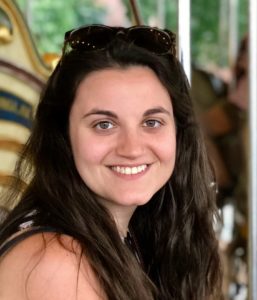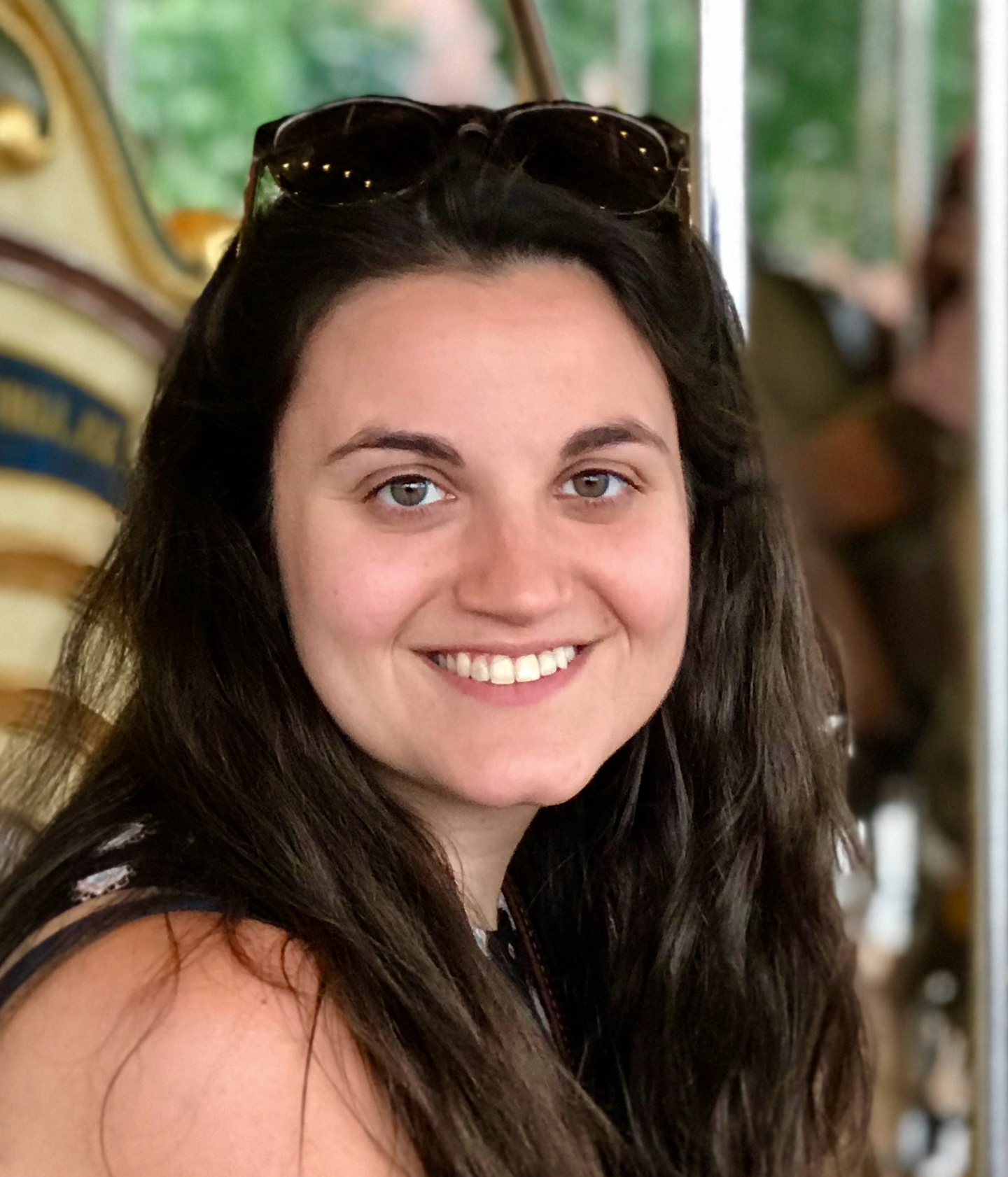
Before getting a Master of Science (MS) in Media Advocacy at Northeastern, Alanna Fusco completed an internship in the Civil Rights Division at the Department of Justice. During her time in the master’s program, which is a collaboration between CAMD’s School of Journalism and the School of Law, she had the opportunity to make valuable connections and learn from industry leaders and experienced faculty. We recently caught up with Alanna to learn more about her experience, how her perception of the communications field changed, and some advice to students who might be applying to an internship! Read the Q+A below.
How did you land your internship at the Department of Justice and how did you prepare for it?
I was connected to the Senior Counsel for Legal Innovation in the Civil Rights Division by Professor Dan Jackson, who is the Executive Director of the NuLawLab and my academic advisor. They had collaborated together in the past through the NuLawLab, and I had mentioned to Dan that I was interested in working in D.C. this summer so he happily connected me. My interdisciplinary experience studying media and law seemed applicable to legal innovation project ideas that the Division was hoping to work on, and so I was offered the position. To prepare, my supervisor shared several resources with me prior to my start date to get me acquainted with the office and its purpose. Since my time there was limited to ten weeks, it was important for me to hit the ground running so we could begin planning the project right away. That being said, I definitely had questions in my first few weeks but was empowered to ask them by my supervisor and the staff.
What was your role?
Specifically, I was assigned to assist the Immigrant & Employee Rights (IER) section within the Civil Rights Division with a media outreach project. Together with my supervisor, we produced an educational video meant to encourage work-authorized members of the public to contact IER if they are facing workplace discrimination.
What was a lesson that you learned from this experience?
There were several important lessons I took away from this experience—one being that you shouldn’t be hesitant to embrace ownership of a project, especially when you are bringing a particular skillset to the table. I think you’ll often find that supervisors appreciate when you are proactive (rather than just waiting for the next task to be assigned) as long as you are communicative with each other. Another lesson that I derived from the experience is that the final product may not necessarily reflect your original plan, and that’s completely okay. The road to success can have many detours so it’s important and necessary to be willing to improvise around factors beyond your control.
During your time at Northeastern, was there a teacher or course that stood out?
Aside from Dan Jackson, I would say Mike Beaudet’s Video News course helped prepare me for this opportunity. In this class, I learned how to shoot, script, and edit short news stories for public consumption. I also learned how to conduct and write questions for an on-camera interview. If I hadn’t taken this course, planning the video for IER would have been much more challenging.
Did this internship change your perspective on the communications field?
Part of what made this opportunity unique was that it was a mutual learning experience for me and my supervisors. While I was learning about IER and the critical work of the attorneys and staff there, it was also clear that my knowledge of video production and creating content for public consumption was really valued by the people I was working with. In this sense, I felt like I was contributing more than I had in past internships where I was mostly focused on learning how to operate in a professional environment.
In terms of the industry itself, in honesty, I wasn’t sure what to expect from an internship at the DOJ given the current political climate but it was immediately apparent that the people at IER really care about their work. Having never worked in a legal environment before, I developed an appreciation for the dedication of the staff in not only protecting the rights of work-authorized individuals but also in acting as educational resources so that the public may better know their rights. They host regular webinars, trainings, and have hotlines for both workers and employers. There is also an emphasis on accessibility in their resources, especially when it comes to language. The intentionality in the creation of resources and in their approach to their casework is a testament to their commitment to public service. It was a reassuring privilege to witness their work up close.
Tell us more about why this internship was so valuable!
Working at the Civil Rights Division of the DOJ was certainly a unique opportunity that I otherwise would likely not have had. It allowed me to practice my media skills in an environment where I was expected to produce a deliverable that the office could use. In that sense, it helped me to think of IER as a client and that definitely translated to some real-world experience. This opportunity challenged me to learn and adapt quickly to a new environment while applying a skill set that is still fairly new to me. Because I had more knowledge about video production than most of my colleagues, I also was challenged in that I had to do a lot of troubleshooting and problem-solving independently. That being said, my supervisors empowered me to complete the project by providing support wherever they could and taking time out of their busy days to check in with me and answer questions. I think I got the best of all worlds in that I was exposed to a new working environment, I was able to refine a skill set and produce a quality portfolio piece—and I was empowered to work autonomously but also had the privilege of collaborating with smart and simply awesome people.
I also now know a bunch of super-smart attorneys in case I ever run into any legal trouble! But all joking aside, I really can’t say enough about working at IER this past summer. Working at the DOJ is basically a once-in-a-lifetime opportunity, and I definitely knew I would be challenged but I didn’t expect to be surrounded by such amazing professional role models who put 110% into their work every day but are so down to earth. The team, especially my two supervisors, were really invested in my experience. I simultaneously received the benefit of genuine mentorship while also having this awesome opportunity to produce something that could be valuable to their work. I feel incredibly privileged to have played a small part in their service to the public.
What is your final message to students who are applying for an internship?
I would say to have an open mind and to only create the expectation to learn from your experience, but to also be proactive about your approach to learning. Also remember that if you put in the time and energy, have a positive outlook, and you are proactive in seeking opportunities and forming relationships then you will more than likely find that the experience is worthwhile and rewarding.
And always keep your eyes and ears open to potential opportunities. I’m not an athlete, but I do love The Office so to quote Michael Scott, “You miss 100% of the shots you don’t take.” If there’s a presentation or a workshop or a project that is of interest to you, don’t be afraid to ask your supervisor if you can participate. Most people will be heartened when you demonstrate curiosity about their work and an investment in your own professional and personal development. Be honest about gaps in your knowledge and ask questions. Finally, I would say being humble and confident in your abilities are not mutually exclusive. And that a thank you note will never not be appreciated and almost always remembered.


